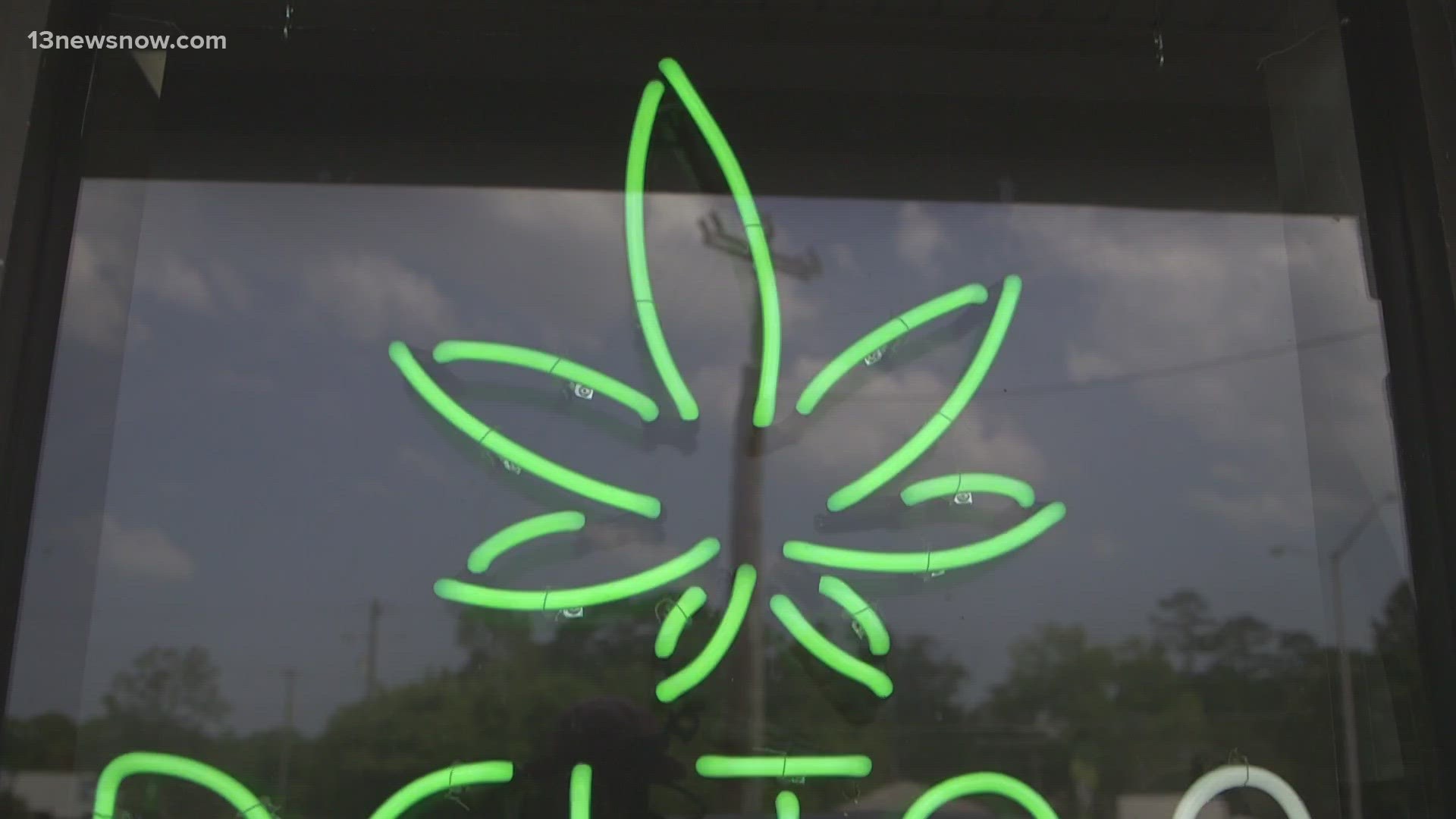NORFOLK, Va. — Jay Lilley's ties to farming run roughly 100 years deep, but he's blazing a different trail as a first-generation cannabis farmer out of Suffolk.
"We had 200 plants the first year, 400 the second year, 500 the next and had about 900 last year," Lilley told 13News Now, describing the growth of his cannabis plant farming stock over recent years.
Lilley, a raw hemp producer who's recently delved into producing limited hemp-derived products like salves and oils, is one of many in the emerging hemp and cannabis industry who are adjusting their business models following Virginia's newly enacted restrictions.
"Starting six months ago, you had to foresee the changes," he said.
What are Virginia's hemp laws now?
In the 2023 General Assembly session, Virginia lawmakers passed legislation — including amendments from Virginia Gov. Glenn Youngkin — that cut down on what kind of hemp products are allowed in the legal retail market.
That includes:
- Products may not have higher than 2 milligrams of total THC per package
- Products may exceed the 2 mg limit if the product adheres to a 25:1 CBD to THC ratio
- Substances containing a "synthetic derivative" of THC are prohibited
- Edible hemp products must be in child-resistant packaging
These new regulations are specifically for hemp-derived products, which come from the cannabis sativa plant but contain less than 0.3% tetrahydrocannabinol (THC).
Those found in violation of these new regulations may face civil penalties of up to $10,000.
How Virginia hemp businesses are adapting to new laws
The new regulations restrict much of what was previously allowed to be sold in Virginia, leaving retail owners that sell hemp-derived products to either throw out or find alternative buyers for their inventories.
"Pulling it off the shelves, going to North Carolina to sell it to a store down there at wholesale," said Stephen Smith, the owner of Easttide CBD in Norfolk. He estimates roughly a quarter of his store's inventory is no longer legally allowed in Virginia.
For those on the producing end, they've had to reconstruct their formulations to fall within the lines of the law, like Lilley.
"Some formulations of our products had to change to follow law with the 25 to 1 ratio. I’m for regulations, what jobs Delegates and State Senators have to regulate this is incredibly hard," he said.
“Added more CBG, it is a cannabinoid that doesn’t have as high of a THC content, he added.
What's the deal with Delta 8?
As recently as 2022, the Federal Drug Administration warned against Delta-8 THC products for the synthetic nature of some of those products.
“You’re taking hemp flower, spraying an acid solution on it and not purging it properly. That’s where people were getting sick," Jonathon Redcross, one of the two "Hemp Twinz" along with his twin-brother Julian told 13News Now.
This year, 13News Now reported 247 edible-related calls to this area’s poison control center in 2022 over ingested edibles, 88 of which were among kids under 6 years old.
State lawmakers have made strides in recent years to stand up a cannabis framework in the commonwealth establishing home cultivation guidelines, sharing rules and more.

